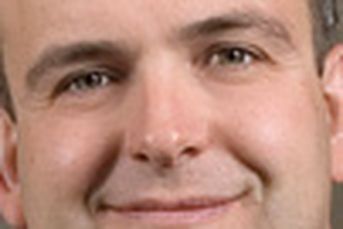Boston Private taps McKinsey partner as its new CEO
Mr. Deutsch won't assume Mr. Vaill's position as chairman, which will be handed to a non-executive member of the company's board on July 31.
Boston Private Financial Holdings Inc. said that Clayton Deutsch will become chief executive and president of the bank holding company, which specializes in wealth advisory and management services for high-net-worth individuals
Mr. Deutsch, 55, who is a senior partner at consulting firm McKinsey & Co., will succeed Timothy L. Vaill, 68, as chief executive July 31. Mr. Deutsch won’t assume Mr. Vaill’s position as chairman, which will be handed to a non-executive member of the company’s board as of that date, the company said.
Walter Pressey, 65, Boston Private’s current president, will retain his role as vice chairman overseeing government relations, investor relations and other areas.
Mr. Vaill, who is enrolling this fall at Harvard University’s Kennedy School of Government for a master’s degree in public administration, said an internal candidate was among the final two people considered by the company’s board for the CEO job. Mr. Deutsch, who joined McKinsey in 1980 and lives in Newport, R.I., has led the consulting firm’s merger management practice since 2006, according to Boston Private.
Boston Private is the holding company for 10 locally managed private-banking, wealth management and asset-management affiliates in five states that cumulatively oversee about $19 billion in client assets.
Despite some rough sledding in recent years, Mr. Vaill says he’s proud of his almost 17-year tenure at Boston Private and confident of its future under new management.
“We’re well grounded with a very strong capital base now, and we really have built a very substantial wealth firm that is serving clients the way they should be served,” he said in a phone interview.
Mr. Vaill, who joined the bank in January 1993 when it was straining under several years of losses, oversaw an acquisition-triggered expansion into the wealth management, asset management and private-banking sector. The company’s headlong growth stopped as its subsidiaries hit credit and asset-growth roadblocks in the 2008 economic collapse.
That summer Boston Private received a $75 million injection from The Carlyle Group, a private-equity firm, and subsequently divested three wealth management affiliates, two asset management firms (including Westfield Capital Mangement Co., with about $13 billion of assets under management) and its loan-scarred Gibraltar Private Bank and Trust unit in southern Florida. The registerered investment advisor divestitures included management buyouts of Rinet Co. LLC in Boston and Sand Hill Advisors LLC, in Palo Alto, Calif.
The company’s remaining affiliates include RIAs Bingham Osborn & Scarborough in northern California and KLS Professional Advisors Group LLC in New York City. It also has a minority interest in Coldstream Capital, a RIA in Seattle. KLS is “hugely profitable” and Bingham is “doing very well,” said Mr. Vaill, though he said the firms’ primary contribution to the company is their ability to service private banking clients with important financial planning and wealth management decisions.
Boston Private, which has paid back $50 million of the $154 million it borrowed from the government’s Troubled Asset Relief Program, said that the sales allowed it to deleverage its balance sheet and reallocate some capital to its remaining affiliates.
At a recent investors’ conference, chief financial officer David Kaye said that the firm’s principal growth initiative is helping its West Coast banks — Charter Private Bank and First Private Bank and Trust — build their financial planning and wealth management prowess by adding products and staff members.
Mr. Vaill, whose total compensation last year was $2.1 million, was the president of Boston Safe Deposit and Trust Co. and its Boston Co. parent before joining Boston Private. He also served as a senior consultant to Fidelity Investments in 1991 and 1992 as it built its personal-trust business for the high-net-worth marketplace, according to his biography on Boston Private’s website.
Under his tenure, the company’s stock grew at a compound annual growth rate of about 9%, more than double that of the Standard & Poor’s 500. It expanded from 25 employees with one office to more than 1,000 in 40 offices and has a market capitalization of around $500 million. “I can say to shareholders that I think they did OK,” he said.
Shares of Boston Private, which at their peak traded at around $33, closed down 28 cents, or 4.5%, to $5.98 in Nasdaq trading on Tuesday. They have ranged between $4.01 and $8.97 over the past 52 weeks.
Learn more about reprints and licensing for this article.




